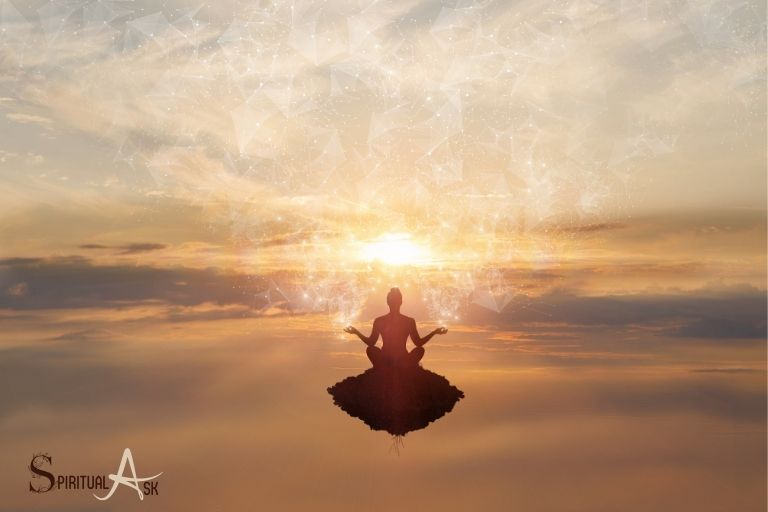Spirituality And the Awakening Self: Personal Growth!
Spirituality and the awakening self involve the process of personal growth and self-discovery, ultimately leading to a deeper understanding of one’s purpose and connection with the universe.
The awakening self is a journey of self-exploration and spiritual growth, in which an individual becomes more aware of their thoughts, emotions, and actions, and seeks to connect with their inner spirit.
This process is highly individualistic and varies from person to person, often involving meditation, mindfulness, and self-reflection exercises.
Through spirituality and the awakening self, individuals can find inner peace, develop a heightened sense of purpose, and foster a stronger connection with the universe and others.
The spirituality and awakening self-process can be a transformative experience for many individuals as they embark on a journey of personal growth and self-discovery. This journey often involves a deep exploration of one’s beliefs, values, and purpose, leading to a greater sense of self-awareness and alignment with one’s true nature. This transformative process can also have a significant impact on an executive’s personal transformation, as they may gain a deeper understanding of their leadership style and how it is influenced by their inner world. As they undergo this journey of self-discovery, executives may find themselves becoming more authentic and inspiring leaders, capable of leading their teams with greater empathy and understanding. This path is not without its challenges, as individuals may encounter moments of doubt, uncertainty, and even anxiety during spiritual awakening. These feelings often arise as old patterns and beliefs are questioned, making way for new perspectives and growth. However, by embracing this discomfort and remaining open to change, individuals can emerge from their spiritual journeys with a renewed sense of purpose and clarity, both personally and professionally.
This journey often leads to a heightened awareness of their own thoughts, emotions, and actions, enabling them to make positive changes in their lives.
Utilizing spiritual practices like meditation and mindfulness can further aid in this growth, fostering an enhanced sense of purpose and a deeper connection to the universe and those around them.
8 Aspects Of Spirituality And the Awakening Self
| Aspect of Spirituality | Description | Role in Awakening Self |
|---|---|---|
| Self-awareness | The conscious knowledge of one’s own thoughts, feelings, and behaviors. | Developing self-awareness can lead to a deeper understanding of oneself and promote personal growth on the spiritual journey. |
| Mindfulness | The practice of maintaining non-judgmental awareness of one’s thoughts, emotions, and experiences in the present moment. | Cultivating mindfulness can help in awakening the self by increasing consciousness, inner peace, and emotional balance. |
| Meditation | The practice of focusing the mind and entering a heightened state of awareness for relaxation, self-improvement, or spiritual growth. | Regular meditation can promote self-awareness, emotional regulation, and spiritual insights essential for the awakening self. |
| Belief Systems | The collection of principles, values, and beliefs that guide a person’s understanding of the world and their place in it. | Engaging with and examining one’s belief system can provoke personal transformation and greater spiritual awareness. |
| Emotional Intelligence | The ability to understand, manage, and express one’s emotions in a healthy and constructive manner. | Developing emotional intelligence can improve relationships and emotional well-being, contributing to spiritual growth and self-realization. |
| Spiritual Practices | The rituals and activities engaged in to connect with the divine or foster personal growth and self-improvement. | Diverse spiritual practices such as prayer, yoga, or nature immersion can assist in connecting with one’s higher self and awakening consciousness. |
| Compassion & Empathy | The ability to feel, understand, and share the emotions of others and to offer kindness and support. | Cultivating compassion and empathy can lead to deeper connections with others and greater awareness of the interconnectedness of all living beings. |
| Sense of Purpose | The feeling that one’s life has meaning, direction, and a greater purpose beyond oneself. | Discovering and aligning with one’s sense of purpose can inspire positive change, personal growth, and spiritual awakening. |
Key Takeaway

Five Facts About: Spirituality And the Awakening Self
The Meaning Of Spirituality And Its Importance In Our Lives
Spirituality is a subject that has been a part of human existence since the dawn of time. It’s an essential aspect of self-discovery, gaining inner peace, and finding meaning in life.
Spirituality has many definitions, and it comes in different forms, depending on one’s beliefs and practices.
Defining Spirituality And Its Significance
- Spirituality is the search for something beyond the physical world, an understanding of the human experience beyond the material world.
- It’s an attempt to connect with something greater than ourselves, such as a higher power, divine energy, or universal consciousness.
- Spirituality can provide a sense of purpose and direction in life, as well as a source of comfort during difficult times.
- Significantly, spirituality is a deeply personal and subjective experience, which means it can differ from one individual to another.
The Role Of Spirituality In Our Daily Lives
- Spirituality can enhance our well-being, mental health, and overall quality of life.
- A regular spiritual practice, such as meditation, mindfulness, or prayer, can help us manage stress, anxiety, and depression.
- Incorporating spiritual practices into our daily routine can help us cultivate mindfulness, increase compassion, and develop a deeper sense of connection with others.
- Spirituality can help us find meaning and purpose in our lives, which can be especially valuable during challenging times or periods of significant change.
The Connection Between Spirituality And Inner Peace
- Inner peace refers to the state of mind where one feels calm, centered, and free from mental disturbance.
- Spirituality can help us achieve inner peace by providing a sense of purpose and meaning, helping us deal with difficult emotions, and cultivating an awareness of the present moment.
- Practices such as mindfulness and meditation can help us cultivate a deeper sense of inner calm and connect with a higher power or universal energy.
- Spirituality can help us develop a sense of gratitude, compassion, and forgiveness, which can contribute to inner peace.
Spirituality is an essential aspect of human existence, providing meaning, purpose, and direction in life. It can enhance our well-being, mental health, and overall quality of life. Spirituality is a deeply personal experience that can differ from one individual to another.
By cultivating a regular spiritual practice, we can experience greater inner peace, a deeper sense of connection with others, and a more profound sense of purpose.
The Awakening Process: A Journey Towards Spiritual Enlightenment
Understanding The Process Of Awakening
The awakening process is the time when an individual expands their understanding of themselves and the world they live in. It is a journey that leads to spiritual enlightenment and deep self-discovery.
Below are the key points to understanding the process of awakening:
- The awakening process is a personal journey that can occur naturally or through a triggering event such as a traumatic experience.
- The process involves a shift in perception and an awareness of internal emotions and thoughts.
- Awakening can result in an increased desire for spiritual growth and a connection to something greater than oneself.
Recognizing The Signs Of Spiritual Awakening
Recognizing the signs of spiritual awakening is crucial in beginning the journey towards enlightenment. It is a gradual process that can take years.
Below are a few signs that indicate an individual may be experiencing a spiritual awakening:
- Increased desire for self-discovery and a search for deeper meaning in life.
- A change in perspective and the feeling of being connected to all living things.
- Increased empathy and transcendence of self-centric thinking.
The Stages Of The Awakening Process
The awakening process has different stages that the self goes through. These stages aren’t necessarily linear and do not have a fixed time frame.
Below are the stages of awakening:
- The realization stage; being aware of the current state of being and feeling disconnected.
- The resistance stage; resisting change and seeking to maintain the current state of being.
- The breakthrough stage; experiencing an epiphany or mystical experience leading to positive transformation.
- The integration stage; integrating the newfound knowledge and spiritual growth into daily life.
The process of awakening is a personal journey towards the realization of one’s self and the world around them. Recognizing the signs and understanding the stages allows individuals to traverse the path towards spiritual enlightenment.
Exploring The Benefits Of Spirituality In Our Lives
Spirituality and the awakening self: exploring the benefits of spirituality in our lives
It is important for every individual to understand spirituality’s significance in their lives and how it can help them achieve a sense of purpose and meaning, find inner peace and happiness, and develop a connection with the divine.
Achieving A Sense Of Purpose And Meaning
Living a life without purpose and meaning can be unfulfilling. Spirituality can help individuals identify their purpose and understand the bigger picture of their lives.
Here are some ways in which spirituality can help achieve a sense of purpose and meaning:
- Providing a sense of direction in life
- Identifying personal values and beliefs
- Understanding the impact of actions on others
- Encouraging self-discovery and self-reflection
- Embracing a larger perspective and goals beyond materialistic desires
By aligning oneself with their purpose, individuals can experience an upliftment in their mental, emotional, and spiritual well-being.
Finding Inner Peace And Happiness
Inner peace and happiness are essential for one’s overall well-being.
Spirituality can facilitate the process of achieving inner peace and happiness through the following ways:
- Developing a positive mindset
- Cultivating gratitude and mindfulness
- Practicing compassion and forgiveness
- Letting go of negative emotions
- Living in the present moment
Spirituality encourages individuals to focus on the inner self, which helps them to tap into their inner peace and find happiness.
Developing A Connection With The Divine
Spirituality enables individuals to develop a connection with the divine, which can transform their lives.
Here are some benefits of developing a connection with the divine:
- Increased faith and inner strength
- Improved intuition and insight
- Feeling a sense of belonging and connection
- Greater sense of peace, love, and harmony
- Experiencing a purposeful and fulfilling life
Spirituality has numerous benefits for individuals seeking meaning, inner peace, and a connection with the divine. By embracing spirituality, individuals can unlock their full potential and experience a life filled with purpose and happiness.
Practices For Cultivating A Spiritual Life
Spirituality and the awakening self: practices for cultivating a spiritual life
Connecting with our spiritual self is essential for a fulfilling life. Many practices can help us tap into this deeper part of ourselves. Here are some effective techniques to cultivate a spiritual life.
Meditation And Mindfulness
Meditation and mindfulness are powerful tools for training the mind to stay focused and calm.
Here are some ways to practice:
- Set aside quiet time each day to sit and focus on your breath, releasing thoughts as they arise.
- Listen to guided meditations to help you clear your mind and relax.
- Practice mindfulness throughout the day by focusing on the present moment, noticing your thoughts, and cultivating a sense of gratitude.
Yoga And Other Physical Practices
Movement can be an excellent way to connect with our spiritual selves.
Here are some practices to try:
- Yoga is a powerful way to stretch and strengthen your body while connecting with your breath and calming your mind.
- Tai chi and qigong are gentle practices that focus on breathing, mindful movement, and meditation.
- Dancing or other expressive movement can be a great way to connect with your body and let go of stress.
Gratitude And Generosity
Gratitude and generosity are essential components of a spiritual life.
Here are some ways to incorporate them into your daily routine:
- Keep a gratitude journal and write down things you are thankful for each day.
- Practice random acts of kindness to show generosity towards others and experience the joy of giving.
- Cultivate an attitude of service by volunteering or finding other ways to help those in need.
Incorporating practices like these into your daily routine can help you develop a deeper sense of peace, connection, and fulfillment. Take some time to experiment with these practices and see which ones resonate with you.
FAQ About Spirituality And The Awakening Self
What Is Spirituality?
Spirituality is a broad concept wherein people seek a meaningful connection with a higher power and the world around them. It encompasses beliefs, values, and practices aimed at discovering the purpose of life.
How Does Spirituality Help In Personal Growth?
Spirituality helps in personal growth by providing a sense of meaning and purpose in life, reducing stress and anxiety, fostering positive emotions, and promoting self-awareness and mindfulness. It also helps in developing empathy, compassion, and interpersonal relationships.
Can Spirituality Lead To Self-Realization?
Spirituality can lead to self-realization, which is the process of achieving a profound understanding of oneself beyond material and egoistic needs. It involves recognizing the essence of one’s being and the interconnectedness of all things.
What Is The Difference Between Spirituality And Religion?
Spirituality is a personal and individual pursuit of meaning and purpose in life, while religion is a more structured and organized belief system with specific practices and traditions. Spirituality can exist without religion, and religion can exist without spirituality.
Conclusion
As humans, we find ourselves questioning our existence and our purpose on earth. Spirituality provides a unique way of connecting with one’s self and the world around them.
Through self-awareness, meditation, and mindfulness, one can awaken their true self and find inner peace.
The journey towards one’s awakening is not always easy but the growth and development that come with it are worth it. Embracing one’s spirituality can bring a sense of fulfillment, purpose, and a deeper understanding of the world.
This awakening can also lead to a greater sense of empathy and compassion for others, the environment, and overall humanity.
By incorporating spiritual practices into our daily lives, we can find a deeper connection with ourselves and the world around us. Let us embrace this journey towards our awakening and allow it to positively impact ourselves and those around us.
Remember, a journey of a thousand miles begins with a single step, so take that step towards your awakening today.






